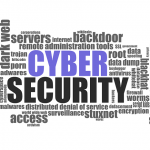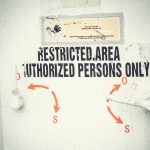
Everyone in the world wants to be successful and recognized, yet this dream doesn’t come true by itself. You need to work hard and keep pushing forward if you want to achieve greatness. You’ll encounter difficult obstacles along the way, but the key is not to give up. Remember: Life works both ways – when it kicks you down, it will, eventually, pull you back up. The secret is that you have to be the one that will stand off the ground when you fall.
Entrepreneurship is the same: Once you get going, you should never stop. We’re here to make it a bit easier for you. Here are a few tips that will ease the path to success!
5 Ways Consumers Can Keep Financial Data Safe from Thieves
1.Review your credit card statements carefully
Your credit card statements need to be squeaky clean if you want to move forward without the fear of something bad happening. Keep reviewing them constantly so you can see if there’s anything wrong with them. Don’t let yourself run into issues simply because you forgot or didn’t want to check your credit card statements. Common known fact: Banks will not approve loans if your credit card history isn’t good. This is especially bad if you’re in the high-risk market. However, your best bet is to find a high-risk merchant account and a reliable high risk payment gateway. So try to keep all of this in mind!
2.Avoid online cards
Online credit cards aren’t very reliable or safe. Remember that all of the information you provide to the provider of online cards is stored in a data bank. Hackers can compromise this data, and you could face losing tons of money. Stay safe and avoid these risky cards. Only use cards that you have opened in a bank and keep your credit card info to yourself!
3.Only make purchases on trusted sites
Before you make a purchase on a website that isn’t as popular as others, make sure that they are reliable and legit. There are numerous cases of scams online, and this is the last thing you want happening to you. If all of this sounds like a hassle and too much work, that’s because it is! We recommend only making purchases on trusted and well-respected sites, but if you need an item or service that these sites don’t provide, very thoroughly check all information and don’t make a purchase until you are 100% sure that it’s safe!
4.Don’t reuse passwords
I have a friend that used one single password for all of his online accounts. He said that it was far too time-consuming to constantly change his passwords on all the sites he visits which are why he used only one. This ended up very badly for him. His online account on one site was hacked, and the hacker used this info on all other sites where he has an account set up. Thus, he lost everything and had to rebuild. Do not do what my friend did and try to use at least 5 different passwords (but we recommend more) for all of the accounts that you use.
5.Set banking alerts
This is a precaution that will help stop any possible unwanted transactions from happening. You might make a mistake where you’ll forget to logout of your account or anything similar, and someone may use this to make purchases on your behalf. Usually, people find out about these transactions when it’s way too late. Even if you’re completely sure that this won’t happen to you, it’s better to be safe than sorry! Set banking alerts, so you know when a transaction is made.
6.Don’t put private information on public computers
If you use any public computer, log out and leave no trace of your existence on that computer. We’ve already discussed this in the previous part. Prevent any theft by keeping private information private! Don’t put any private information on public computers because you may get compromised!
7.Don’t put confidential information online
This is even worse than leaving your private information out in the open. People, that abuse confidential information can ruin your life completely. Confidential information is confidential for a reason – no one else should know about it but you or someone you trust completely (inside your business, but even this is a risk). Never share confidential information online.
8.Keep your operating system safe from spyware
Spyware can be hard to track, and you most likely won’t notice you have it until it’s too late. To avoid this, use an anti-virus to block potential spyware programs. Spyware can infect your PC/Operating system easily and then it will proceed to search for your private information. Spyware was the bane of many entrepreneurs and businesses that didn’t have adequate protection against it. Protect yourself and your business from harm!









